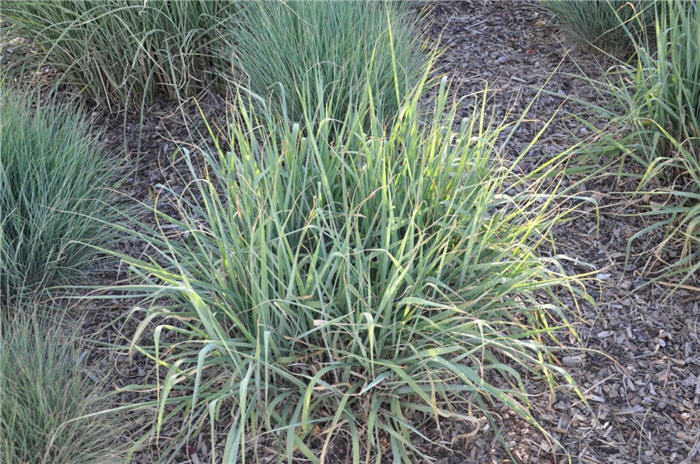| Botanical Name: Sorghastrum nutans 'Sioux Blue' | |
| Common Name: Indian Grass |

-
Anatomy
-
Culture
-
Design
Plant Type
Perennial, Grass
Height Range
3-6', 6-12'
Flower Color
Red
Flower Season
Summer, Fall
Leaf Color
Blue Green, Grey Green
Bark Color
n/a
Fruit Color
n/a
Fruit Season
n/a
Sun
Full
Water
Low
Growth Rate
Moderate
Soil Type
Sandy, Clay, Loam, Rocky, Unparticular
Soil Condition
Average, Poor, Well-drained, Dry
Soil pH
Acid, Neutral, Basic
Adverse Factors
n/a
Design Styles
English Cottage, Meadow, Mediterranean, Ranch, Spanish, Native Garden
Accenting Features
Showy Flowers, Silhouette
Seasonal Interest
Winter, Summer, Fall
Location Uses
Background, Perennial Border, Shrub Border, Foundation, Walls / Fences
Special Uses
Cut Flowers, Erosion Control, Hedge, Screen, Mass Planting, Naturalizing, Small Spaces
Attracts Wildlife
n/a
Information by: Stephanie Duer
Photographer:
Photographer:
-
Description
-
Notes
Sioux Blue is an eye-catching, warm-season, clumping grass that grows about 5 to 6 feet tall (7 feet in flower) and 3 to 4 feet wide. Medium-wide blades are grey-blue and hold their color until the fall, when they turn a lovely yellow-orange. Plumes emerge July until frost, and are coppery-red. Native across much of North America, Quebec west to Dakotas, south to Arizona, Florida, & Mexico.
Grows best with full sun in most any soil as long as it is well drained. Extremely tolerant of cold. Provides erosion control, great dried flowers, and good for livestock. Needs regular watering until established, but then is drought tolerant. Over-watering can make it floppy. Cut back in late winter before new growth emerges; see Guides.